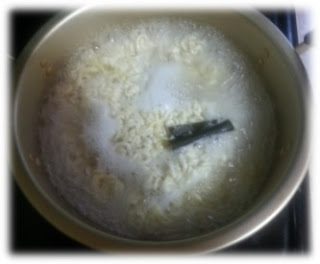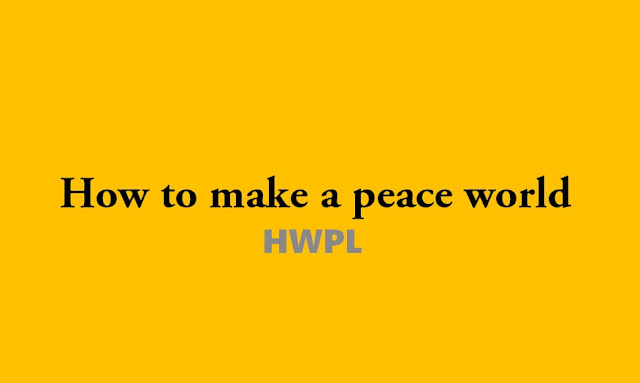No need to ask, everyone wants peace,
but there was no concrete alternative on how to achieve it.
How long will we only think and stay on the tabletop theory?
For this, throughout the day(April 26, 2018) delegates commended United Nations peacebuilding assistance as an important instrument for helping States overcome conflict and preventing its recurrence, while calling for more coordinated efforts among United Nations agencies and structures.
Expressing concerns about sovereignty, several speakers called for interventions to be carried out in line with the United Nations Charter and according to the desires of Member States.
Expressing concerns about sovereignty, several speakers called for interventions to be carried out in line with the United Nations Charter and according to the desires of Member States.
*************************************
To realize the peace world, let's ask HWPL, who is taking a step forward, and listen to the answer.
***************************************
Q 1 :
Is there a possibility that the DPCW can be legislated as a legally-binding document?
A1:
HWPL has been engaging in and continuously expanding 'Legislate Peace' project, in order for every state and individual in the world to take part in supporting the DPCW and in the effort to introduce the DPCW as a UN resolution.
Civil societies gathered their hearts for peace through the LP project and sent their letters to people from various walks of life around the world, and high-level leaders from multiple countries also have been sending their support for the DPCW.
The voices of the civil societies can change the world in a better direction. Since HWPL is working with civil societies from around the world, we believe that the potential for the DPCW to become a legally-binding document is very high.
Civil societies gathered their hearts for peace through the LP project and sent their letters to people from various walks of life around the world, and high-level leaders from multiple countries also have been sending their support for the DPCW.
The voices of the civil societies can change the world in a better direction. Since HWPL is working with civil societies from around the world, we believe that the potential for the DPCW to become a legally-binding document is very high.
Q2 :
What kind of activities is HWPL engaged in for the DPCW to become an international legal instrument for peace?
A2 : After the 10 articles and 38 clauses of the DPCW were proclaimed in 2016, the Legislate Peace project began so that the DPCW can become an international legal instrument for peace, with the youth and women in the center of its effort.
The LP project started out as a signature campaign to support the DPCW, through which the value of the DPCW was made known to people from various walks of life in the society in order to urge for their support. The signature campaign has now expanded to various cultural events and campaigns with the DPCW as its basis, currently taking place in 176 different countries.
Starting in 2018, in particular, about 600,000 citizens from multiple countries wrote hand-written letters that urged for peace, actively participating in a peace letter campaign to reach out to leaders in 192 different countries including presidents, prime ministers, heads of national assemblies, and chief justices.
The LP project started out as a signature campaign to support the DPCW, through which the value of the DPCW was made known to people from various walks of life in the society in order to urge for their support. The signature campaign has now expanded to various cultural events and campaigns with the DPCW as its basis, currently taking place in 176 different countries.
Starting in 2018, in particular, about 600,000 citizens from multiple countries wrote hand-written letters that urged for peace, actively participating in a peace letter campaign to reach out to leaders in 192 different countries including presidents, prime ministers, heads of national assemblies, and chief justices.
Q3.
How is the DPCW different from UN Charter or the Universal Declaration of Human Rights?
A3 : While the DPCW is based on mindset of the UN Charter and the Universal Declaration of Human Rights, which agree on humanity’s common development and the creation and maintenance of a peaceful world as the entire globe’s purpose, the DPCW is different in a sense that it approaches the principles and participation for peace in a more active and developed form.
Articles 1 through 7 deal with roles of a state in creating a peaceful environment in the international society, including prohibiting the use of force, reducing war potential, respecting international law, and developing friendly relations. Articles 8 to 10 emphasize freedom of religion, participation of the citizens, and strengthening education and welfare; they propose that the creation of a world of peace is a task of this era for every person on this earth. The DPCW’s purpose is to create peace in a permanently sustainable form.
Q4.
How was the Declaration of Peace and Cessation of War made?
A4 : After several discussions in 2015 at HWPL International Law Peace Committee, which is composed of 21 international law experts from 17 countries, the preamble and the body of the 10 articles and 38 clauses were finally drafted. The DPCW was proclaimed in Seoul, South Korea, on 14 March 2016. The Declaration was made in English, and has been translated into 14 different languages to be publicized all over the world. The purpose of the Declaration is to further develop the universal values of peace included in the UN Charter and the Universal Declaration of Human Rights, and to legislate peace in order to realize a sustainable world of peace.
Q5.
Is HWPL a religious organization?
A5 : HWPL is solely a peace organization that transcends religion, working with the principles and visions of peace. It does not support any specific religion. Additionally, one of HWPL's peace initiatives – the Religious Harmony Initiative – provides a forum for communication between both religious and non-religious people, regardless of their denominations, as they explore the value of peace in each religious scripture.
Q6.
What does HWPL do?
A6:
With its umbrella organization – the International Peace Youth Group (IPYG) – and a cooperating organization, the International Women’s Peace Group (IWPG), HWPL is working actively under the motto, "to make peace in the world and leave it as a legacy to the future generation." Leaders from all walks of life around the world, 199 advisors, 607 publicity ambassadors, and over 200,000 volunteers are working together in implementing global peace activities by transcending national boundaries, races, cultures, and religions. HWPL is also participating in spreading various cultures of peace in order to promote the implementation of UN SDGs.
HWPL's three main peace initiatives are as follows:
1) Legislate Peace project (LP project)is a global campaign to encourage the implementation of peace and to develop the Declaration of Peace and Cessation of War (DPCW) as a legally binding document.
2) The World Alliance of Religions' Peace Office (WARP Office) is a place of practical harmony and communication in which various religious people come together to find solutions for peace through the comparison of religious scriptures.
3) HWPL Peace Education Project purposes to disseminate peace materials being produced on the basis of basic values of peace, such as dignity, loyalty, coexistence and the sustainability of life, to HWPL Peace Academies and educational institutes around the world to provide peace education.
Q7.
What kind of an organization is HWPL?
A7 : Heavenly Culture World Peace Restoration of Light (HWPL) is registered as a corporation in Seoul Metropolitan Government in accordance with the regulations of the South Korean Ministry of Foreign Affairs regarding non-profit corporations. In addition, HWPL has been registered with the United Nations NGOs and is currently associated with the United Nations Economic and Social Council (ECOSOC) with Special Consultative Status, also engaged in volunteer work and peace movement as an international peace organization registered to the United Nations Department of Global Communications (DGC).
Q8.
What does Heavenly Culture World Peace Restoration of Light (HWPL) mean?
A8 : Heavenly Culture World Peace Restoration of Light means to achieve world peace with heavenly culture and restore light. With a purpose to restore the global community that has been suffering through wars and conflicts, HWPL is engaged in its peace movement as it transcends barriers of national boundaries, races, cultures, and religions, with the core values of respecting peace and life.
Q9.
I wish to take part in the work of HWPL. What should I do?
A9 : You can take part in the work of HWPL by participating and supporting the Legislate Peace project and the World Alliance of Religions' Office (WARP Office) which is managed by HWPL in each country.
Please send us an e-mail at info@hwpl.kr and a representative will contact you.
#HWPL #IPYG #PEACEWORLD #WARPOFFICE #UN #LP #UN






















































